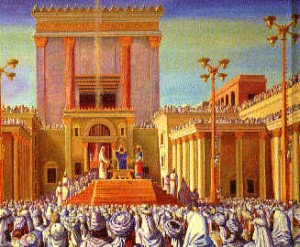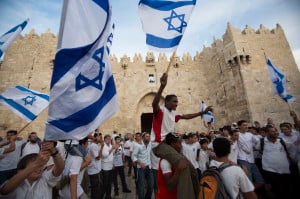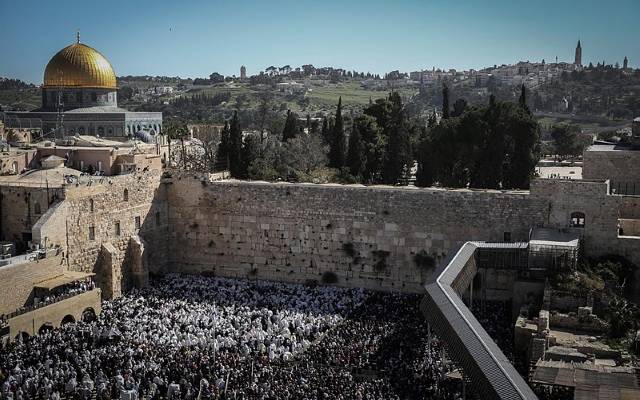
By Rabbi Ari Enkin, Rabbinic Director, United with Israel
At the time of the Holy Temple, a pilgrimage to Jerusalem on Jewish festivals was a top priority. Why?
This week’s Torah portion (in Israel) is Behar (Leviticus 25:1-26:2), and it is one of the shortest readings in the Torah.
Let us examine the following verse: “You shall not make idols for yourselves, and you shall not erect for yourselves a statue or a pillar, and in your land you shall not make a floor of stones upon which to prostrate oneself – for I am the Lord, your G-d. My Sabbaths shall you observe and My Sanctuary shall you revere – I am the Lord.” [Lev 26:1-2].
It is well known that the Torah is vehemently, but vehemently, against idol worship. It is mentioned countless times. It’s even in the Ten Commandments. Why does the Torah yet again mention the prohibition against idol worship in this week’s Torah portion? We can ask the same question in that same verse regarding the repeated commandment to observe the Sabbath. Why again? Why here?
The commentators note that the verses immediately prior to this one discuss a Jew who was sold as a slave to a Gentile idol worshiper. The Torah tells us that even though that Jew will be living among idol worshipers, he cannot let himself ‘slip’, he must remain faithful to the Torah and its mitzvot (Torah commandments). Interestingly, it specifically warns him to believe in God, keep Shabbat and revere the Holy Temple, the latter being a requirement for the Jewish slave to make the pilgrimage to Jerusalem on the festivals, just as everyone else.
We know that a Jewish slave must keep the entire Torah. Why single out these three mitzvot?

Festival pilgrimage to the Holy Temple (Image courtesy Temple Institute)
It is explained that these three mitzvot are among the most important – which begs another glaring question:
Believing in God is a very big mitzvah, it’s constant, and even the Sabbath is a weekly event, testifying that one believes that God as the king of the universe. But why does the mitzvah of visiting Jerusalem on holidays make the list? There are a slew of other mitzvot that we can point to as being seemingly more important and weighty!
Our sages explain that when a person went up to Jerusalem back then and saw the city and the Holy Temple, he witnessed throngs of people united in the observance of the Torah – the reverence, the celebration, the service of God, and along with the many other things that one experienced there, one was radially moved and inspired to making a greater commitment to Torah observance. One emerged from the experiences with renewed energy, along with renewed fear and love of God. The person’s mitzvah observance was positively affected for months afterwards.
Perhaps now we can understand why the pilgrimage to Jerusalem made it to the top three mitzvot: It was a mitzvah that influenced all others! It was a mitzvah that influenced one’s entire life!
A mitzvah that leads to better Torah observance in every area of one’s life surely merits being at the top of the list!
For more insights by Rabbi Ari Enkin on this week’s Torah reading, click on the following links.
https://unitedwithisrael.org/living-torah-the-land-of-israel-for-the-nation-of-israel/
https://unitedwithisrael.org/living-torah-study-brings-jewish-continuity/
https://unitedwithisrael.org/pretend-youre-a-farmer/
https://unitedwithisrael.org/sabbath-for-the-land/
https://unitedwithisrael.org/behar/

Sign the Declaration to Keep Jerusalem United
Jerusalem Must Remain the United Capital of Israel
I declare that Jerusalem is the eternal capital of the Jewish People and support all efforts to maintain and strengthen a united Jerusalem as the undivided capital of the State of Israel.
See our Privacy Policy


